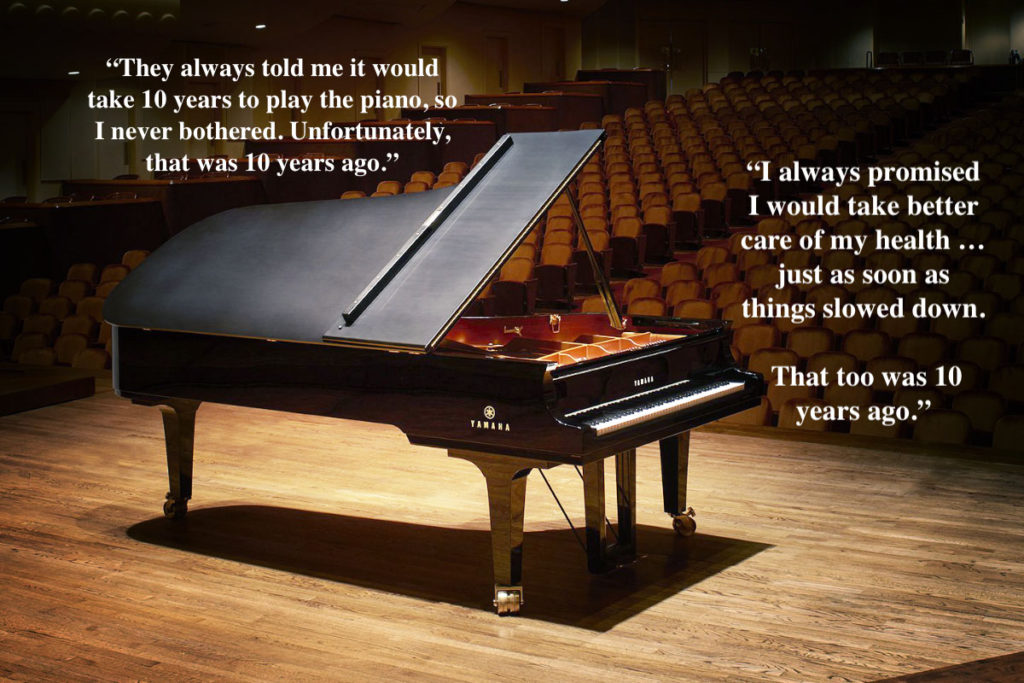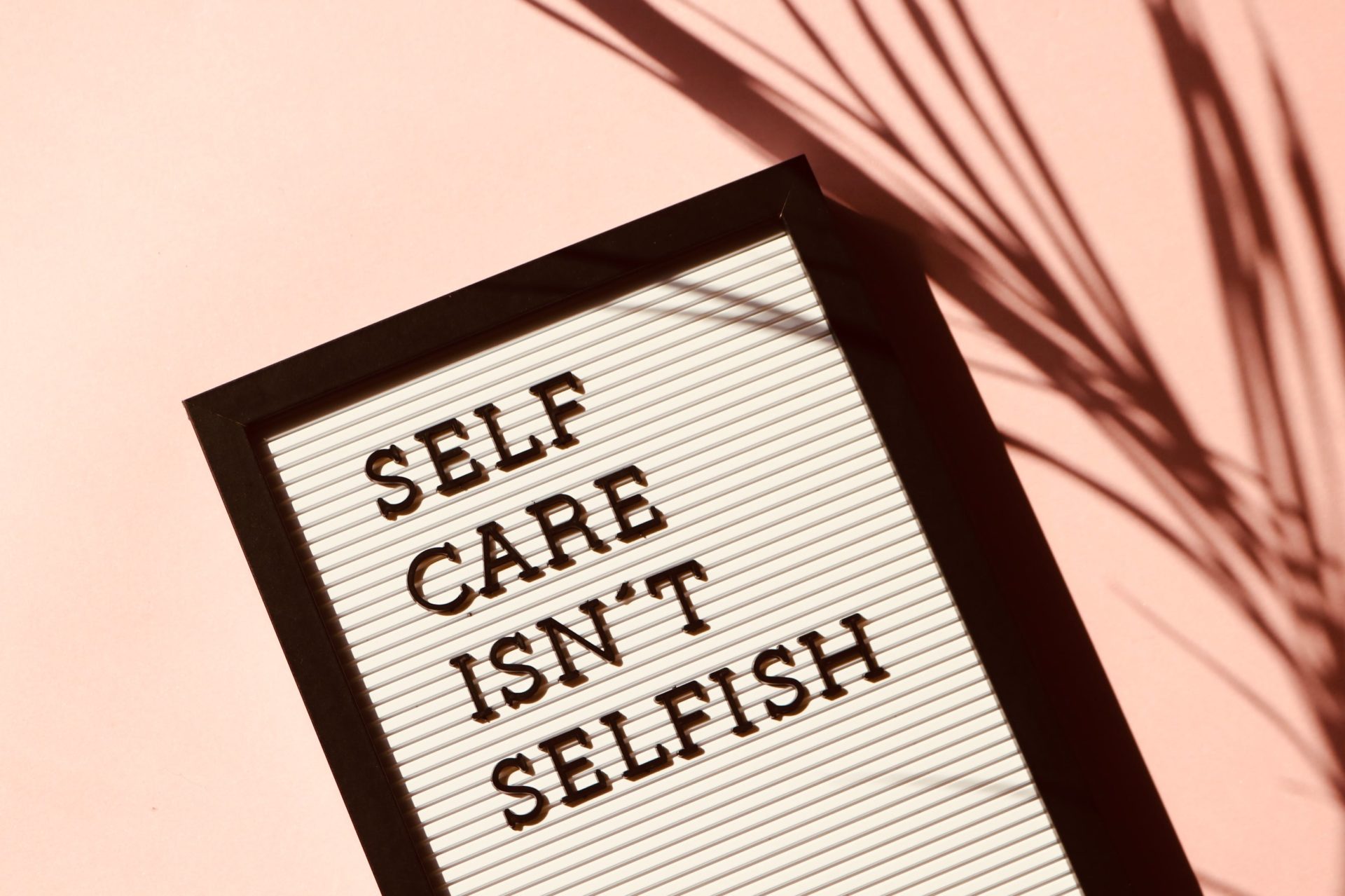HEALTH … you either take control or you cede control. So what’s it going to be?
“If you choose not to decide, you still have made a choice …”
~Neil Peart, FREEWILL “RUSH”
In a 2019 study, 2,000 Americans were polled about their health habits and attitudes, resulting in some predictable but still fascinating findings.
For example;
- 71% said their health inhibits them from feeling happy
- 64% said they don’t have time to take care of themselves, and
- 66% said it takes too much effort to feel healthy
These responses are unfortunate but not particularly surprising … but it gets worse …
- 63% of those surveyed said they plan on worrying about being more health-conscious when they’re older.
So, what does that mean? What does worrying about health actually mean? What does older mean? When is this great transition day supposed to occur, from not worrying about one’s health to suddenly caring for it?
This is serious head-in-the-sand delusional thinking. These people just don’t get it. Not only are they going to age prematurely, but they’re going to miss enjoying decades of peak health … and the thing is, they have no idea what they’re missing.
Senescence is a term for the gradual loss of muscle, function and vigour. Sedentary people in their 30s, 40s, and 50s lose their vitality, so gradually, they don’t even notice. Aging moves in on sedentary people in increments over the whole middle part of their lives until one day, they realize they’ve succumbed to decades of diminishing muscle, bone degeneration and functional health, which they assume is a normal, natural part of aging.
But it’s not! Aging and decrepitude are often seen together, but let’s not confuse association with causation.
In fact, this gradual wasting away over decades is an actual disease … it’s called sarcopenia, which is an overall weakening of the body.
As sedentary people age, their bodies slowly exchange muscle for fat. The more they sit around, the greater their body’s muscle mass is replaced by fat. This insidious weakening of body structure and gradual loss of functional capacity becomes a good excuse for continued immobility.
But let’s be clear: we don’t have to succumb to the disease of sarcopenia any more than we have to be victim to other lifestyle diseases.
So when people say they plan on worrying about being more health-conscious when they’re older, what they’re saying is one of two things: if I don’t think about it, all will be well, or I just don’t care!
The fact is either view will bear some seriously disappointing consequences.
Choosing to exercise is not necessarily natural, and living an active lifestyle in our modern world requires overcoming some evolutionary challenges … but only initially, and then for a very short period.
The key to maximizing your health span is to find joy in being healthy today.
As we noted at the beginning, 71% of those polled say their health inhibits them from being happy. In comparison, 63% choose not to think about it at all by using the flimsy excuse that they’ll look after it when they’re older.

So, when it comes to your future health, what’s it going to be?
If you live long enough, you’ll have regrets, but the ones that will haunt you are the ones when you knew you had a choice.
Hopefully, the choice is still yours.






